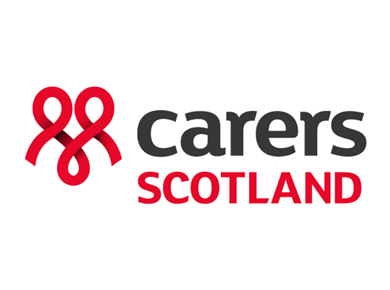It is important to plan ahead and consider with the person you look after what their wishes would be in the future should a time arise when they are unable to make their own decisions. Where health and financial concerns are in question, preparing in advance can really help save much stress and worry about making the right decisions in the future.
What is having mental capacity?
Having mental capacity is the ability to make a decision, whether it is an everyday decision such as what to wear, or a more important decision such as where to live.
There are different ways of looking after someone’s affairs
Below are some typical scenarios you might be faced with when caring for someone. Click on each to see what options are available.
They can make their own decisions but want help managing their money…
If the person you look after needs help to manage their benefits and there is not already a lasting power of attorney in place, you could apply to be their appointee.
This means that you become responsible for making and maintaining any benefit claims on behalf of the person you look after.
For more information on appointees you can visit the GOV.UK website.
If the person you look after wants help managing their bank account then they could make a third party mandate with their bank. This means that they name a specific person (for example you as their carer), and this gives you the authority to manage the bank account. You should speak to the bank of the person you look after to request a third party mandate arrangement.
If the person you look after wants help managing their bank account and other financial affairs, both now and in the future (for when they are unable to make a decision), they could grant a continuing power of attorney for financial affairs to a specific person (for example you as their carer).
If granted this, you would have the authority to deal with any financial affairs the lasting power of attorney specifies. This can be used as soon as it is registered, and can continue to be used if the person you look after becomes unable to make their own decisions (so if they lack mental capacity). See below for some further information on continuing power of attorneys.
If granted this, you would have the authority to deal with a combination of both the financial affairs and health and welfare of the individual. It can be granted to more than one person. For more guidance, see https://www.publicguardian-scotland.gov.uk/power-of-attorney
They can make their own decisions now but want to make arrangements in case they are unable to in the future…
If the person you look after can currently make their own decisions but wants to make plans in case they are unable to make decisions in the future, they could make a power of attorney. This means that they appoint a specific person (for example you as their carer) to have the authority to make certain decisions on their behalf.
There are three main types of power of attorney:
- Continuing power of attorney (sometimes called a financial power of attorney) – which covers things such as bank accounts, paying bills, collecting benefits or pensions and selling a home.
- Welfare power of attorney – which covers things such as medical care and social care.
- Combined welfare and continuing – which covers both welfare and financial matters.
Note: A continuing power of attorney can be used before the person you look after is unable to make their own decisions, if they so wish. However a welfare power of attorney can only be used if the person you look after is unable to make their own decisions.
For more information about power of attorneys, including how to make one, how to register one and the fees involved, you can view the Office of the Public Guardian (Scotland) website.
If the person you look after wants to grant a power of attorney (or several) and wants some help with this, they could contact a local advice centre or a legal adviser for guidance.
They are unable to make their own decisions and there’s no power of attorney in place…
If the person you look after is unable to make their own decisions and needs help to manage their benefits, you could apply to be their appointee (if there is not already a lasting power of attorney in place).
This means that you would become responsible for making and maintaining any benefit claims on their behalf.
For more information on appointees you can visit the GOV.UK website.
If the person you look after is unable to make their own decisions and needs help to manage their bank account, you could apply for authority to access and manage their funds (if there is not already a lasting power of attorney in place). This is often referred to as the ‘access to funds scheme’.
For more information on the access to funds scheme, including how to apply, who you need to notify, and the fees involved, you can visit the Office of the Public Guardian (Scotland).
If there are ongoing decisions that you want to manage, you could apply for a guardianship order (if there is no power of attorney in place). This means that if your application is successful you will have the authority to make certain decisions on their behalf.
There are two types of guardianship order:
- guardianship order for financial affairs – which covers things such as bank accounts, paying bills, collecting benefits and pensions and selling a home
- guardianship order for welfare – which covers things such as medical care and social care.
You can apply to be just one type of guardian, or both types of guardian.
For more information on guardianship orders, including how to apply and the fees involved, you can visit the Office of the Public Guardian (Scotland).
In this case you could apply for what is known as an intervention order (if there is no power of attorney in place).
There are two types:
- intervention order for financial affairs – which covers things such as bank accounts, paying bills, collecting benefits and pensions and selling a home
- intervention order for welfare – which covers things such as medical care and social care.
For more information on intervention orders, including how to apply and the fees involved, you can visit the Office of the Public Guardian (Scotland).
If you would like to apply for a guardianship order or intervention order and need some help with this, you could contact a local advice centre or seek guidance from a legal adviser.
Latest updates

Carers UK responds to DWP announcement of aim to tackle all Carer’s Allowance overpayment alerts
Carers UK responds to Department of Work and Pensions (DWP) announcement that it will aim to tackle all Carer's Allowance…

Carer Poverty Coalition responds to Government's welfare reform Green Paper
It's extremely worrying that some measures within the Green Paper on Welfare Reform changing disability and health benefits will actively…

Carers UK celebrates Investing in Volunteers award
Carers UK is delighted to have achieved the UK-wide quality mark for organisations involving volunteers during the charity’s 60th anniversary…

New rise in Carer Support Payment in Scotland earnings limit will increase financial security for carers on a low income
Carers Scotland press release on the increase in earnings threshold for Carer Support Payment in 2025.
Got a question about caring?
Every day we hear from people who need help with looking after a friend or family member
Become a member for free
Joining Carers UK is free and takes just a few minutes.
